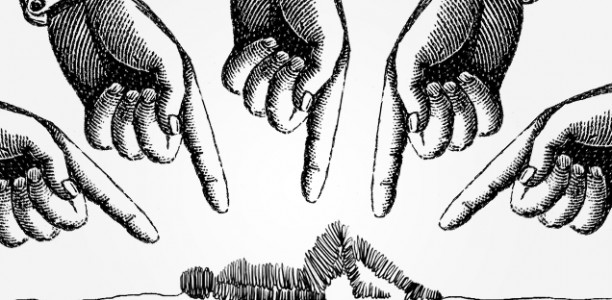Too many medical students face humiliation, discrimination or harassment at the hands of a supervising GP
Too many medical students face humiliation, discrimination or harassment at the hands of a supervising GP, writes Dr Kimberley Ivory
“You, who are on the road, must have a code that you can live by.
And so, become yourself, because the past is just a good bye.
Teach your children well, their father’s hell did slowly go by…”
– Graham Nash, 1970
Every now and then, your research makes you sad. I guess you think that would make sense in my case, given my research is on bullying and harassment in medicine.
In my recent survey with AMSA of the experiences of Australian medical students, I was prepared for the tales of bullying senior consultants and arrogant registrars in hospitals meting mistreatment on medical students. What was unexpected and especially saddening was the number of students who described negative experiences in their general practice placements.
General practice doesn’t get a great rap in many medical schools. It’s viewed by many as a low status, poorly paid backwater for those not smart enough to become “real” specialists. Fewer than 17% of Australian med students say they want to be a GP. It’s outranked by general medicine and surgery, and the vast majority of those students who do want to be GPs want to practice in urban areas, despite a persistent shortfall of GPs in rural and regional areas.
Students hear demeaning things about general practice almost every day in medical school. Here’s a choice example from our survey:
“There are some registrars [who tell] medical students … not to pursue specialist training and to ‘just be a GP’ when we can’t answer questions. … they say things like ‘You should know this. I guess you’ll be the kind of doctor who will refer unnecessarily and fill up my waiting room’.”
Both male students and doctors frequently suggest to female students that they “should be GPs so they can take care of their children”, implying in one breath both that training females is a waste of money and general practice is some kind of cushy option.
But if that’s not bad enough, when students do finally get to experience general practice first hand, many of them have their experience marred by inept teaching, bad behaviour or downright harassment… and that’s just from the GPs.
Students in our survey also described discrimination against international students by practice managers and patients in rural general practice. Neither the students nor their colleagues felt they could do or say anything as they had minimal support in this isolated rural location.
Students described being ignored, or yelled at in front of patients; having to endure sexist jokes or inappropriate comments about domestic violence and being “put in their place” if they objected. Worst still, female students were physically harassed by GPs. One followed the student home and suggested they “[get] a hotel room together”.
One GP apparently thought it would be funny to send a patient with significant mental health issues and a deep distrust of strangers into the consultation room alone with a student. The patient yelled and screamed abuse at the student who ran out of the room in distress, to find the doctor standing outside the door laughing, oblivious to the anguish of both patient and student.
Good general practice placements, especially in rural areas, are difficult for medical schools to find and maintain. There are now many medical schools competing for places. Some offer more attractive incentives than others.
But in all their medical training most students are unlikely to spend more than one term in general practice and only a fraction of that in rural settings, compared to weeks and weeks of hospital experience in the hands of specialists. Students choose their careers based on the experiences they have and the role models they meet. The appeal of high status, high-income specialties may be sufficient for a student to ignore or overcome negative experiences from clinicians in that field, but general practice is already behind the door in the minds of many students.
Humiliation, discrimination or harassment at the hands of a GP, especially in an environment in which the student is isolated, can only serve to reinforce negative opinions.
Sadly, many of us already in general practice experienced similar humiliations and mistreatments at the hands of our teachers. More sadly, some of us internalised that as ‘the way it’s done’ and have failed to develop more effective teaching methods, setting up a vicious cycle of misery.
Good supervision goes well beyond, ‘see one, do one, teach one’. It’s a learned skill. Good universities provide their GP tutors with training and support. In NSW, the Health Education and Training Institute provides an excellent course called Conversations in Medical Supervision that is as relevant to GPs as it is to hospitalists.
When you have a student in your practice you are the reflection of a future career.
Our survey is a call to reflect on that reflection and take pains to ensure it’s an attractive one. Please don’t make the children – or the researchers – cry.
Dr Kimberley Ivory is a GP, medical academic and writer


